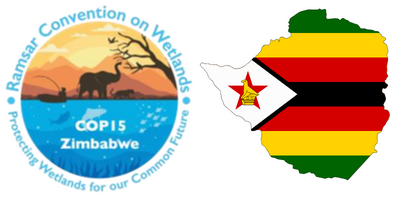Zimbabwe’s commitment to the conservation and sustainable management of wetlands is enshrined in the 2022 National Wetlands Policy and reinforced by a robust framework of national legislation. These policies and laws are key components of the country’s broader environmental protection agenda, ensuring that wetlands are preserved for their ecological, social, and economic benefits.
The 2022 National Wetlands Policy
The 2022 National Wetlands Policy represents a significant step forward in Zimbabwe’s approach to wetland conservation. The policy articulates the government’s commitment to the wise use, protection, and restoration of wetlands as a critical element of sustainable development. The policy is built upon several key principles:
- Wise Use: The principle of wise use emphasizes that wetlands should be used sustainably, ensuring that the ecological functions of these ecosystems are not compromised while allowing for their appropriate utilization. This involves balancing human activities with conservation needs, particularly in areas that are highly dependent on wetland resources.
- Ecosystem-Based Management: The policy advocates for an ecosystem-based management approach, which considers the entire wetland ecosystem, including its biodiversity, hydrology, and ecosystem services. This approach promotes integrated management that protects the wetlands as whole systems, recognizing their interconnections with surrounding environments.
- Community Participation: Recognizing the vital role of local communities in the sustainable management of wetlands, the policy stresses the importance of involving communities in decision-making processes. It aims to foster collaboration between government authorities, local stakeholders, and other partners to promote wetland conservation and raise awareness about their value.
Legislation: Environmental Management Act (Chapter 20:27)
In addition to the National Wetlands Policy, Zimbabwe has a legal framework for the protection and management of wetlands, the Environmental Management Act (Chapter 20:27). This Act serves as the cornerstone of the country’s environmental protection legislation and contains provisions that directly address wetland conservation:
- Wetland Protection: The Environmental Management Act designates wetlands as critical ecosystems that must be protected and managed sustainably. It provides guidelines for their conservation, restoration, and sustainable use, ensuring that wetlands are not degraded through activities such as urban development, agriculture, or industrial use.
- Environmental Impact Assessment (EIA): The Act mandates that activities which may impact wetlands, such as land development or large infrastructure projects, undergo an Environmental Impact Assessment (EIA). This ensures that potential negative impacts on wetland ecosystems are identified and mitigated before such projects are approved.
- Regulation of Wetland Conversion: The Act prohibits the conversion of wetlands into other land uses without appropriate regulatory processes. This includes a requirement for approval from the relevant environmental authorities, which must consider the ecological and hydrological importance of the wetland in question.
Together, the 2022 National Wetlands Policy and the Environmental Management Act (Chapter 20:27) provide a comprehensive framework for wetland conservation in Zimbabwe. These policies ensure that wetland ecosystems are protected from degradation, while also promoting their sustainable use for the benefit of local communities and the nation as a whole.
Zimbabwe’s legal and policy commitments reflect the country’s dedication to preserving its rich natural heritage, aligning with both national development goals and international obligations under frameworks like the Ramsar Convention.

